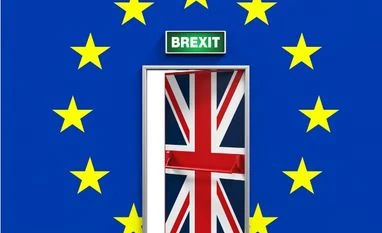Fast forward to August and there is more disruption. Tens of thousands of holidaymakers face queues of up to four hours – longer than the flight in many cases – across European airports due to stricter border checks.
Although the two events are unrelated, the chaotic scenes witnessed may be a harbinger of things to come at UK airports and beyond if Brexit negotiators do not afford some level of priority to the aviation sector.
Plane sailing
The liberalisation policies of the EU over the past two decades have facilitated substantial growth in both air passengers and cargo. Today, approximately one billion passengers support 5.5m jobs and contribute €110 billion to EU GDP.
For the UK – where one in every two departing passengers are travelling to an EU destination – the aviation sector contributes some £52 billion to GDP, supports almost one million jobs, and pays about £9 billion in tax. Plus, two out of three visitors to the UK arrive by air and 40% of its trade by value is by air.
Currently, EU regulations govern how airlines registered in the UK can operate services between the UK and other EU member states, between non-UK EU states, internal flights within some EU states, and between the UK and non-EU members. Hence, more than 35 pieces of EU legislation (excluding the labyrinth of labour law) govern the workings of UK-registered airlines. Among other things, this includes how they are licensed, where they can fly, how they can market products, how passengers are compensated, and what safety precautions they must observe.
Turbulence ahead
At its most dramatic, the consequences of failing to agree an aviation agreement would mean no legal basis for flights to operate at UK airports from April 1, 2019. When the UK leaves the EU, it also leaves key agreements and agencies like the European Common Aviation Area and the European Aviation Safety Agency. And, unlike other sectors (such as trade), there is no fallback agreement that the UK can rely on.
If no agreement is reached on trade, WTO provisions could be brought into operation; no similar arrangements exist for aviation. This means there would be no legal framework to fly; “no deal is better than a bad deal” simply cannot apply. Traditionally, air services agreements are negotiated on bilateral or multilateral bases and set out the key terms in respect of access and capacity. Hence, the UK needs to conclude bilateral air services agreements with the EU and with all of the non-EU countries currently covered by EU agreements.
While such agreements normally take considerably less time to negotiate than trade agreements, these are not normal circumstances. Some EU members may see an opportunity to curb the impact of low fare carriers on their domestic markets. Some US airlines may consider it an opening to restrict long-haul, low fare operators such as Norwegian from accessing US airports via EU registrations.
Another reason to grant aviation special status in the Brexit negotiations is because airlines sell their product up to 300 days in advance and travel agents sell holidays up to 18 months ahead. Hence, seats on flights scheduled to operate on April 1, 2019 might normally be available for sale on many airlines by the middle of 2018 with the respective date for holidays fast approaching.
Such advanced planning (alongside its revenue-generating appeal) is necessary to ensure that the required infrastructure, such as aircraft, hotels and crew, are available. EasyJet’s application for an Austrian base and Ryanair’s call for a clear legal framework by September 2018 reflect the urgency of the matter.
Next steps
While both the UK and EU negotiators have publicly adopted a “nothing is agreed until everything is agreed” mantra, the unprecedented nature of these negotiations may provide scope to reach agreement in principle on aviation before other areas. They can then ratify it when all else is agreed.
Calls to afford aviation preference have been forthcoming from several sources. Research conducted on behalf of the UK’s Airport Operators Association found that 80% of MPs supported the prioritisation of air transport (the recently-launched consultation on future UK aviation strategy will not be completed in time to impact negotiations).
On the EU side, a recent meeting of the European Parliament’s transport committee heard representatives from EU airlines, airports and travel operators stress the need to avoid travel chaos. In the US, the chief executive of the largest aviation trade group called for aviation to be separated out from Brexit negotiations so that UK-EU and UK-US Open Skies Agreements, which govern flying between them, could be finalised by April of 2018 to avoid disruption.
With the third round of negotiations scheduled to commence on August 28, a positive first step in this direction would be to include aviation on the agenda.
Padraic Regan, Lecturer in Strategy; Researcher in Aviation, Trinity College Dublin
This article was originally published on The Conversation. Read the original article.
To read the full story, Subscribe Now at just Rs 249 a month
Already a subscriber? Log in
Subscribe To BS Premium
₹249
Renews automatically
₹1699₹1999
Opt for auto renewal and save Rs. 300 Renews automatically
₹1999
What you get on BS Premium?
-
Unlock 30+ premium stories daily hand-picked by our editors, across devices on browser and app.
-
Pick your 5 favourite companies, get a daily email with all news updates on them.
Full access to our intuitive epaper - clip, save, share articles from any device; newspaper archives from 2006.
Preferential invites to Business Standard events.
Curated newsletters on markets, personal finance, policy & politics, start-ups, technology, and more.
Need More Information - write to us at assist@bsmail.in
)